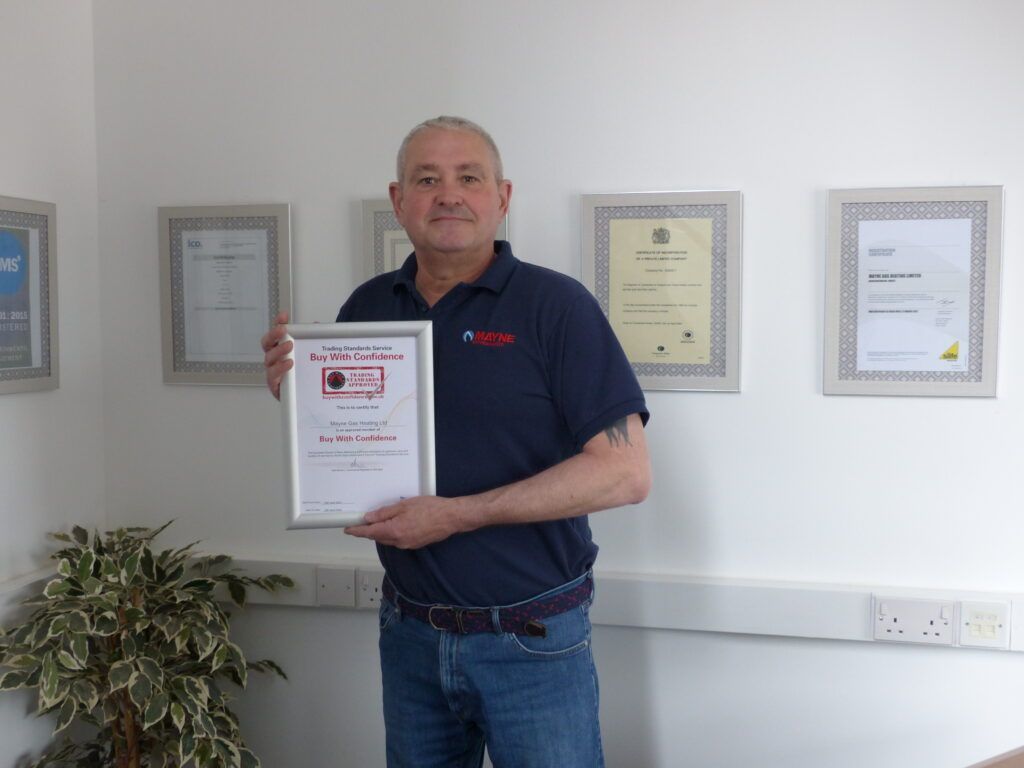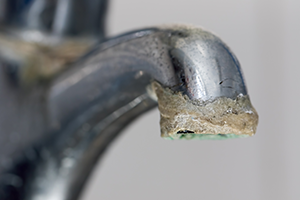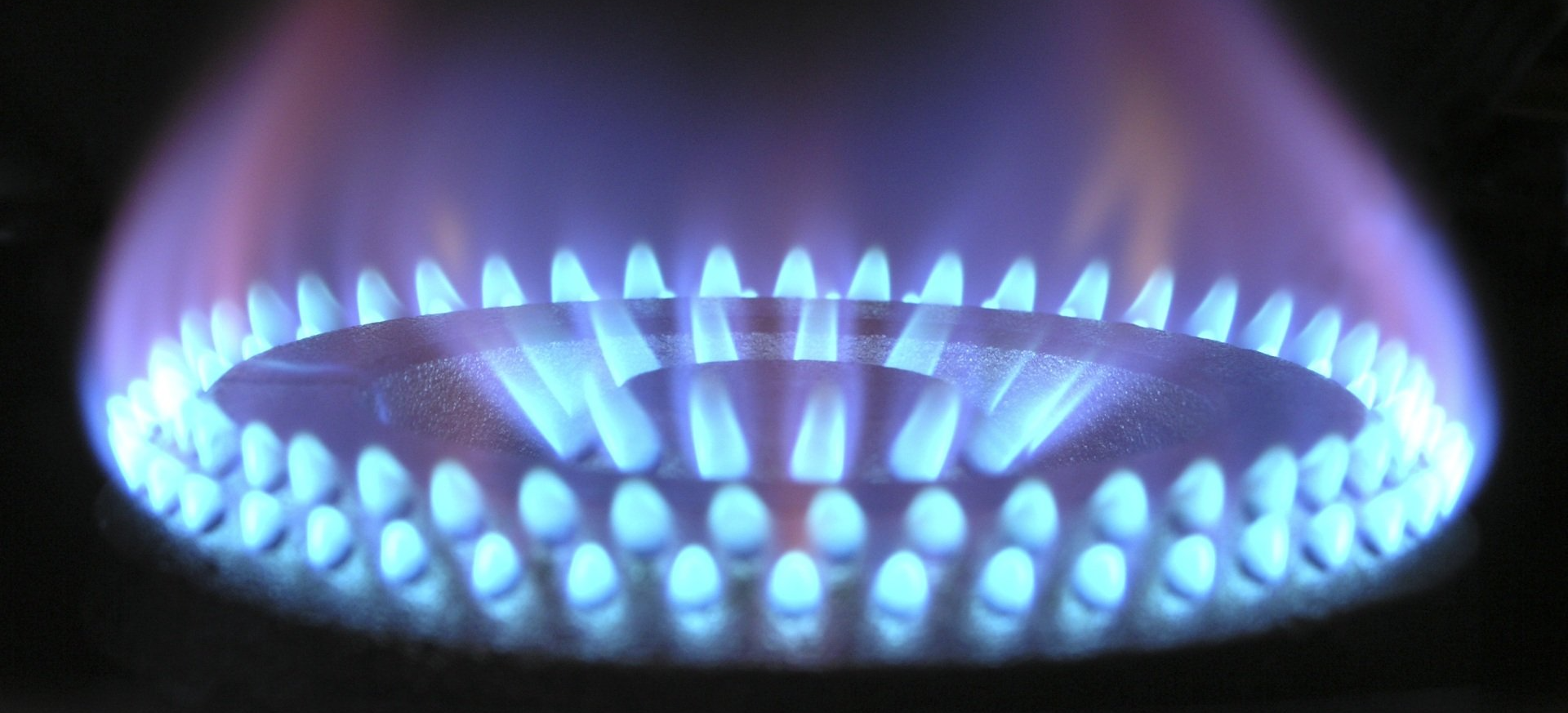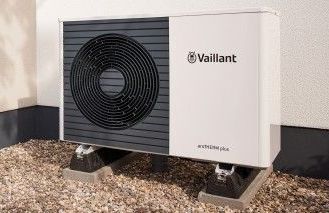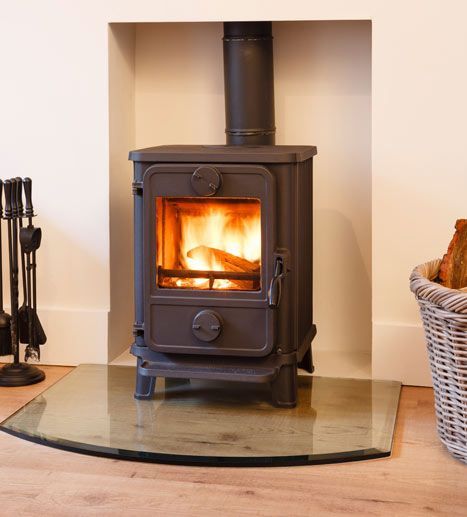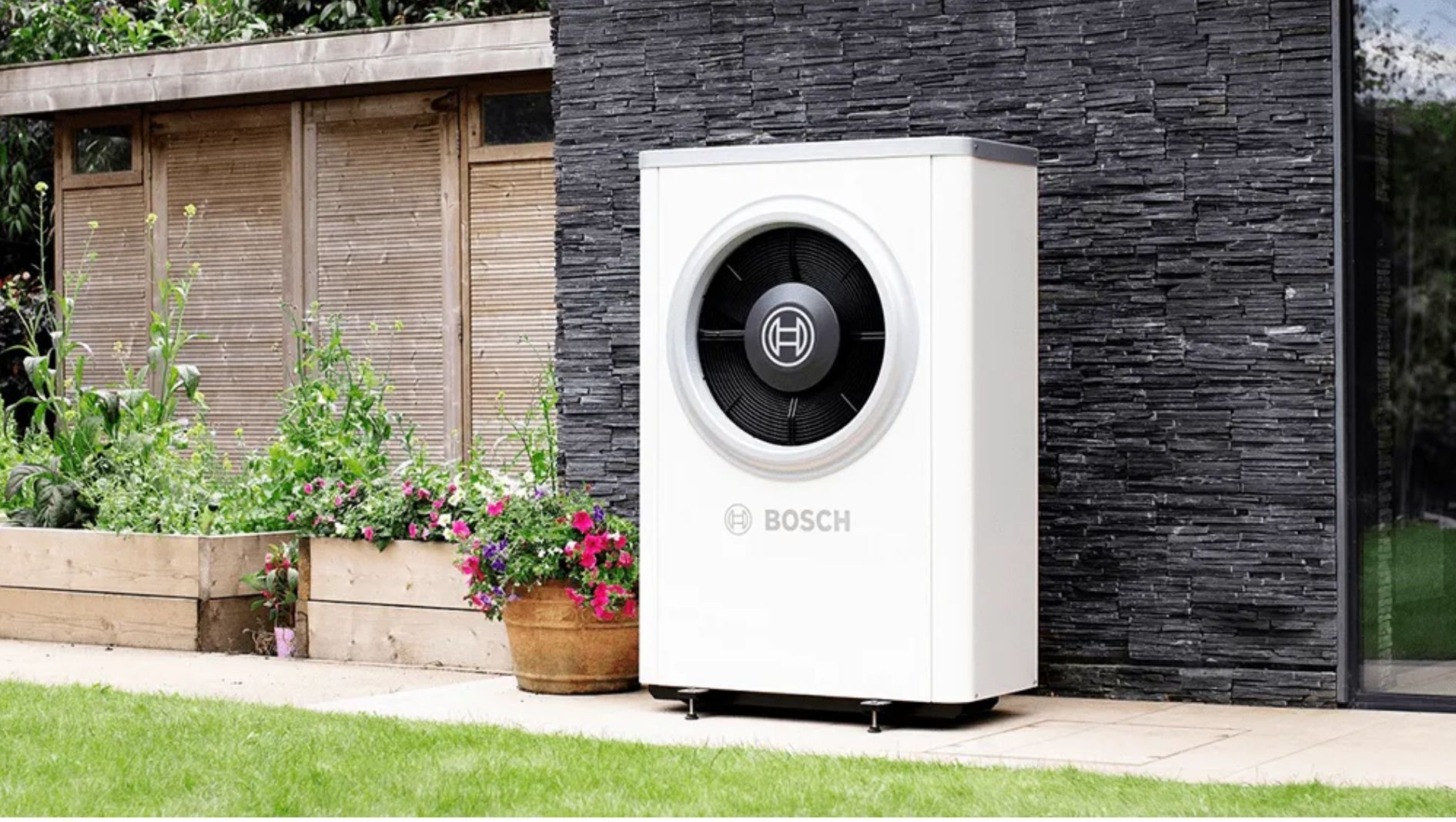What are the benefits of a combi boiler? | Mayne Gas Heating
Darren Mayne • 13 March 2020
Why you should consider a combi boiler
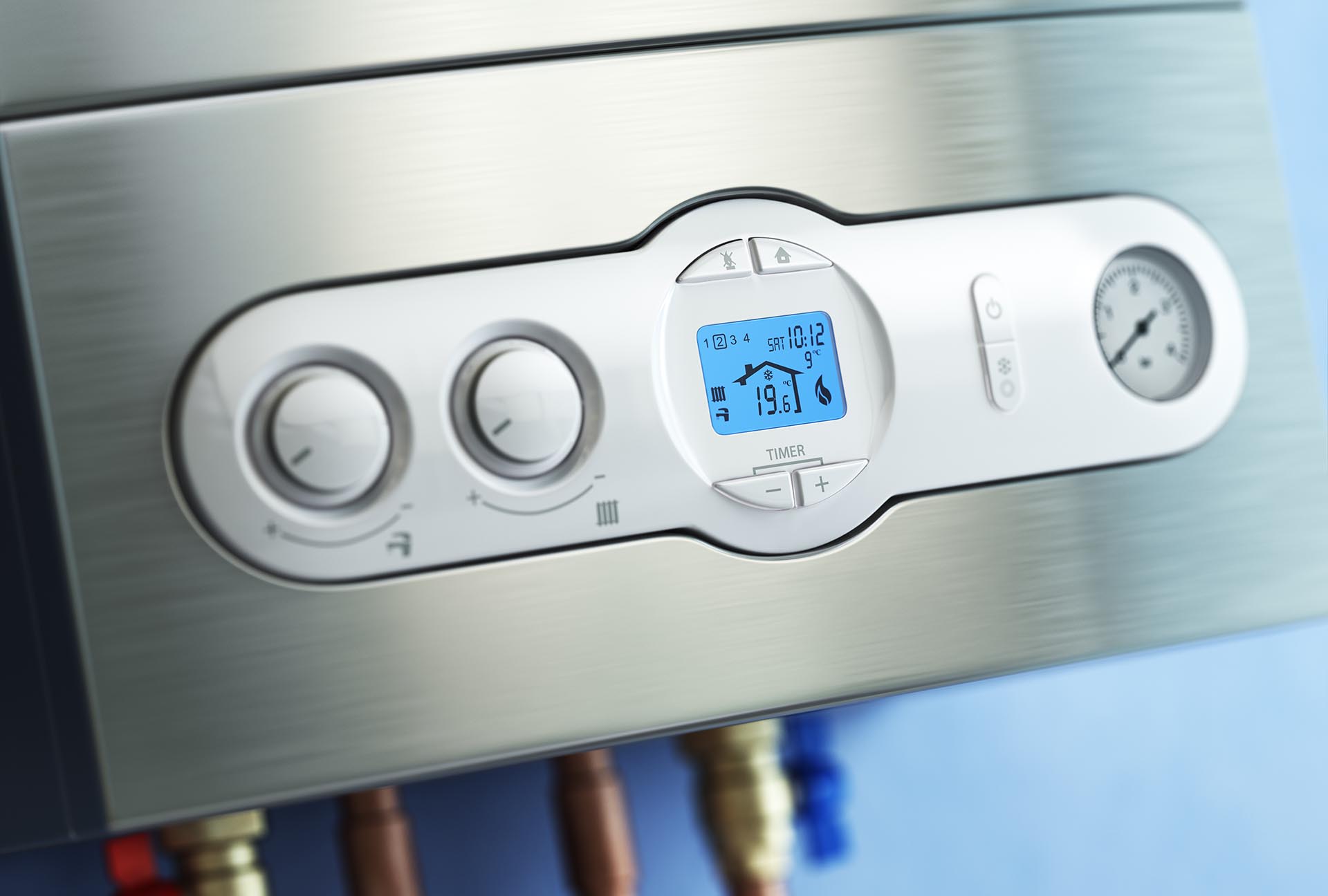
A combi (or combination) boiler was invented to try save space in the home. Its name is coined from its function, as it combines a single unit which serves two purposes - heating and hot water. A combi boiler works by taking water directly from the mains and providing you with instant hot water when turning the tap. Combi boilers are becoming increasingly popular in homes up and down the UK.
1. Space saving
A combi boiler is a combination of both a water heater boiler and a central heating boiler into one unit, which greatly reduces the space required to store both. Traditionally, most homes were served with a water tank and a boiler. The heated water in the tank would then feed to your taps and showers. This standalone system simply does both. In new builds or new boiler installations, they are often placed in areas such as attic/loft spaces to minimise pipework and space saving means in kitchens where they are traditionally placed.
2. High pressure water
For more enjoyable showers! As the water is provided to your taps and showers at mains level power, you can enjoy an increased water pressure. Those using electric showers, which takes cold water from the mains and heats it in the shower system, you will notice a huge difference in the power of the water coming through the shower if moving to a mains powered shower and a combi boiler. Of course, the drawback to this, if you boiler is ever on the blink - you're left without the means of showering as well as heating.
3. Reduced cost
Everything comes down to money and when we can make a saving for the same or better quality, we Brits jump at the opportunity. Being a single unit, combi boilers are easier and therefore cheaper to install in a property. They are also widely available, as are their parts. So should you be servicing a combi boiler for many years, any parts which do need replacing are likely to be that little bit cheaper.
4. Cleaner heating
Combi boilers are less likely to contribute to a build up of debris or sludge, this is because water is not left being stored in a tank and is only brought into the system when needed, via the mains. This therefore helps stop unwanted build ups which can be costly to clear and keeps the whole central heating and hot water systems operating more efficiently.
If you're looking to make the switch or simply replace your current combi boiler, the experts at Mayne Gas Heating LTD
are on hand to help!

Mayne Gas Heating Ltd is proud to confirm that we are accredited by The Microgeneration Certification Scheme (MCS), The Renewable Energy Consumer Code (RECC) and Trustmark to install air source heat pumps (ASHPs) , providing our customers with an energy-efficient and environmentally friendly heating solution. We are also PAS 2030 compliant which means our Engineers are a highly trained and experienced team, qualified & authorised for servicing , repairing and installing new gas boilers and Air Source Heat Pumps on the government funded ECO4 scheme. As energy prices rise and sustainability becomes a key priority, air source heat pumps are an excellent alternative to traditional gas heating. These systems extract heat from the air, significantly reducing carbon emissions and lowering energy bills. With government incentives available, such as the Boiler Upgrade Scheme that offers a £7500.00 grant towards heat pumps, now is the perfect time to make the switch. At Mayne Gas Heating Ltd, we are committed to delivering high-quality, professional installations . Our accreditation means we meet the highest industry standards, ensuring you receive a reliable, cost-effective, and expertly installed heat pump system. If you’re interested in reducing your carbon footprint and cutting heating costs, get in touch with us today to learn more about air source heat pumps and how they can benefit your home. Call us on 01471 241211, or send a website form from our Heat Pumps page for free advice.
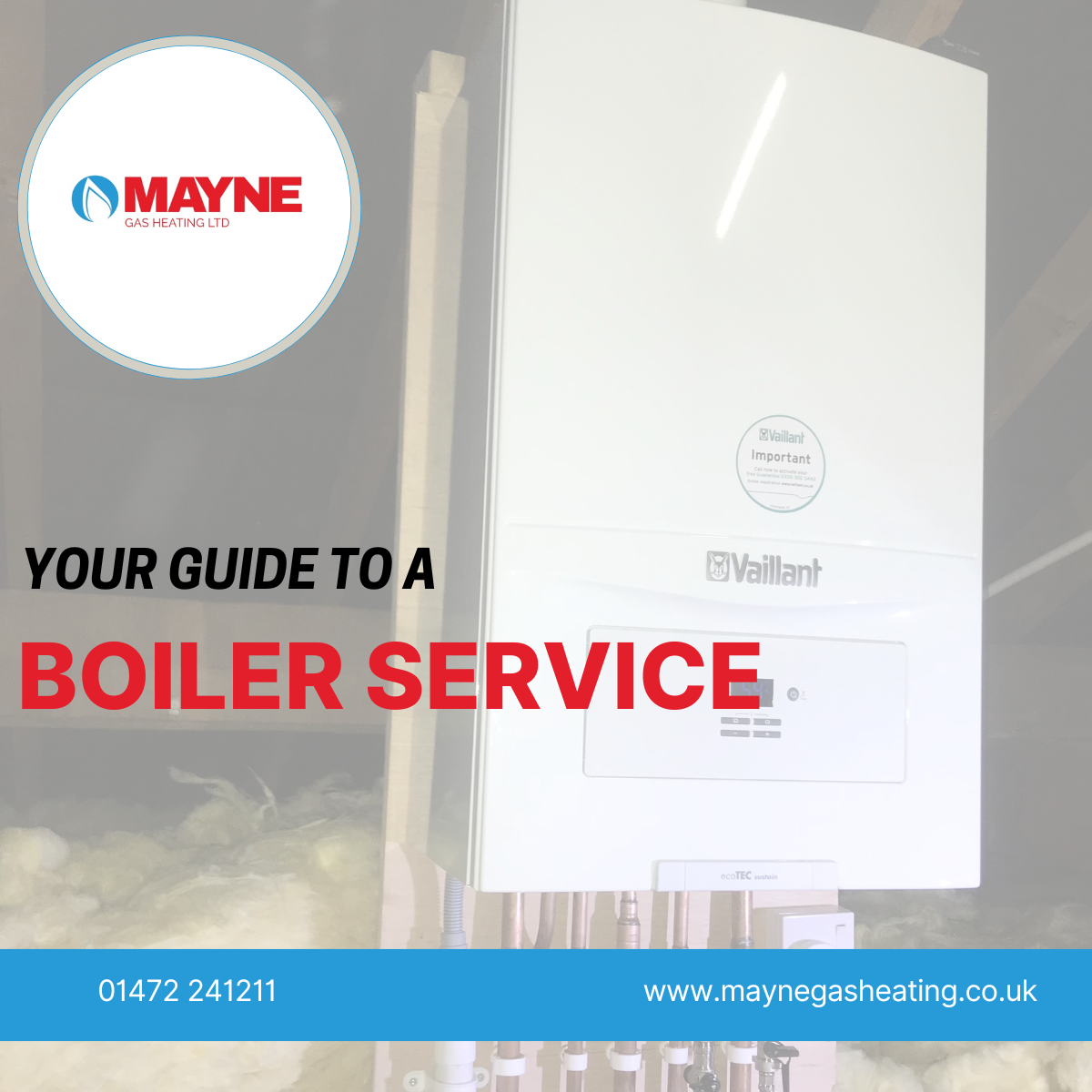
A boiler service is an annual maintenance check that should be carried out by a Gas Safe Registered engineer. A boiler service is important because it helps to keep your boiler running safely and efficiently. An annual service can also help to identify any potential problems with your boiler before they become serious. Regular maintenance can also help your boiler last longer. 1. How to Get a Boiler Service The best way to get a boiler service is to call a Gas Safe Registered engineer and schedule an appointment. Once the engineer arrives, they will carry out an inspection and service of your boiler and make any necessary adjustments. They will also let you know if there are any potential problems with your boiler that they have identified. During the service, the engineer will: Check the boiler casing for any signs of damage or corrosion. Inspect the flue to check it is not blocked and that there are no signs of leaks. Test the boiler's controls to make sure they are working properly. Inspect the burner and heat exchanger to make sure they are clean and free from debris. Check the boiler's flue terminal to make sure it is not obstructed. Test the boiler's operating pressure and water level to make sure they are within the manufacturer's recommended limits. Inspect the boiler's safety devices to make sure they are functioning correctly. Give you advice on how to keep your boiler running safely and efficiently. After the service is complete, the engineer will provide you with a service certificate which is valid for 12 months. While it is not a legal requirement to have your boiler serviced, it is highly recommended as it can help to extend the lifespan of your boiler and prevent costly breakdowns. Servicing also helps to ensure your boiler is operating safely and efficiently, which can save you money on your energy bills. If your boiler is under warranty, missing a service will result in the warranty being voided. 2. How often should you have a boiler service performed, and what are the consequences of not doing so regularly enough? The boiler should be inspected and serviced at least once a year by a Gas Safe Registered engineer. This is to make sure that it’s operating safely and efficiently. If you don’t get your boiler serviced regularly, there is a risk of it breaking down when you need it most – in the middle of winter! Not only that, but an inefficient boiler will end up costing you more money to run, as it won’t be operating at its most efficient. So make sure you get your boiler serviced once a year, to keep yourself and your wallet happy! 3. What are the benefits of having a regular boiler service done - both for your home and for your wallet? Assuming you have a gas boiler, there are several benefits to having a regular service done. Firstly, it helps to keep your boiler running smoothly and efficiently, which can save you money on your energy bills. Secondly, it can help to spot any potential problems with your boiler before they become serious, which could prevent costly repairs or even replacements down the line. Finally, a service can also give you peace of mind that your boiler is safe and operating correctly, which is especially important if you have young children or vulnerable family members in your home. Call us on 01472 241211 to book in for your annual boiler service!

A new boiler can be a significant investment for any homeowner in the United Kingdom. It is important to know how much a new boiler will cost before making the decision to purchase one. The average cost of a new boiler in the UK is £2,500 - £3,000; this includes the cost of the boiler itself and the installation costs. However, there are a few things that can affect the price of a new boiler. The type of boiler you choose, the size of your home, and whether or not you need to replace an existing boiler are all factors that will affect the cost. The type of boiler you choose is one of the most important factors in determining the cost of your new boiler. There are three main types of boilers: combi, system, and conventional. Combi boilers are the most popular type of boiler in the UK as they are compact and easy to install. The size of your home is another important factor to consider when determining how much your new boiler will cost. If you have a large home, you will need a larger boiler to heat it effectively. This means that the installation costs will also be higher. Conversely, if you have a small home, you can save money by choosing a smaller boiler. This is something our onsite surveyors will be able to help you with. The average cost of a new boiler in the UK is £2,500 although there are several factors that can affect this price including the type and size of your home as well as whether or not an existing boiler needs to be replaced during installation. Boiler conversions are also an option, and these can range from £2500 to £3500 on average. It is important to consider all of these factors when budgeting for your new boiler purchase. Replacing an old or outdated boiler can be a costly proposition. There are a lot of factors to consider when budgeting for a new boiler, including the type of boiler, the size of boiler, installation costs, and more. Boiler Type: The type of boiler you choose will have a big impact on the price. There are several different types of boilers available on the market, including gas boilers, oil boilers, and electric boilers. Gas boilers tend to be the most expensive, followed by oil boilers. Boiler Size: The size of your boiler will also affect the cost. If you have a large home or business, you'll need a larger boiler to heat it effectively. Smaller homes can get by with a smaller boiler. Installation costs also increase with larger boilers. Installation Costs: Installation costs can vary widely depending on the complexity of the installation and whether or not you need to do any work to prepare your home for the new boiler. Simple installations might only cost a few hundred dollars, while more complex installations could cost several thousand dollars. Fuel Costs: The cost of fuel is another important factor to consider when budgeting for a new boiler. Gas and oil prices fluctuate regularly, so it's important to keep an eye on these costs when shopping for a new boiler. Electric rates are often more stable, but they can still fluctuate from time to time. Location: The location of your home or business can also affect the cost of your new boiler replacement. Boilers located in areas with cold winters will typically be more expensive than those located in warmer climates. This is due to the fact that cold weather requires more energy to heat buildings effectively. Age of Current Boiler: The age of your current boiler is also a factor that affects replacement cost. Older boilers are often less energy-efficient than newer models, so replacing an older model with a newer one can lead to significant savings in fuel costs over time. Efficiency Ratings: When shopping for a new boiler, it's important to compare efficiency ratings carefully. More efficient boilers will typically cost more upfront, but they'll also save you money on fuel bills over time. These savings can quickly offset the initial investment in a more efficient model. Price is always an important consideration when making any major purchase, and that includes buying a new boiler. By keeping these factors in mind, you can be sure that you're getting the best possible deal on your new boiler replacement. Contact us today on 01472 241211 for the best advice and to book in for a free quote!


